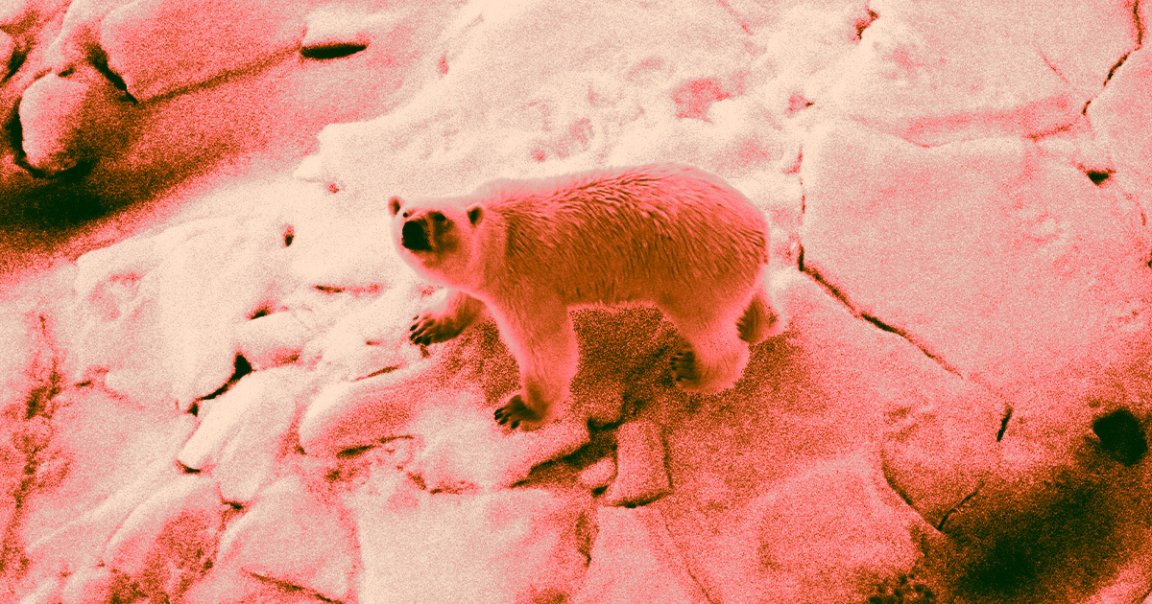
Iced Out
Polar bears can’t catch a break. First, you have Arctic ice decreasing year after year due to climate change. And oil drilling that can potentially destroy their snowy dens. And now there’s another thing to worry about: the bird flu.
Alaska officials confirmed last month that a polar bear died from Highly Pathogenic Avian Influenza (HPAI), specifically the EA H5N1 strain. That’s striking because otherwise, records show that the contagion mostly killed birds, including the iconic bald eagle, in 2023 — as well as at least one red fox.
In other words, this pernicious virus has reached even the most remote parts of the planet, and that big mammals like the polar bear are not immune to the bird flu, according to The Guardian. The current bird flu outbreak first flared up in 2021.
“This is the first polar bear case reported, for anywhere,” said Alaska’s state veterinarian Bob Gerlach to local news outlet Alaska Beacon.
Gerlach said the bear, which is considered a threatened species under United States regulations, may have eaten a bird infected with the virus, but it could also have been exposed to the bird flu in another, unknown way.
“If a bird dies of this, especially if it’s kept in a cold environment, the virus can be maintained for a while in the environment,” said Gerlach.
Birdemic
The bird flu has been wreaking havoc all over the world in the last three years, coincidentally happening at the same time of the COVID-19 pandemic.
It hasn’t gotten the lion share of headlines, unlike COVID, but it has hit the poultry industry hard, struck dead birds in the wild, and killed some mammals such as foxes, cats, and now a polar bear.
The New York Times reported back in December that it’s also “caused a small number of deaths in people, primarily in those who had close contact with birds. The risk to the general public remains low, experts say.”
How do you stop the bird flu from spreading? There doesn’t seem to be an easy fix. Poultry farms have turned to culling their large infected flocks, often by basically roasting birds alive. Seems like the cure is as bad as the disease.
More on polar bears: Scientists Find Secret Polar Bear Clan Hidden for Centuries in Greenland